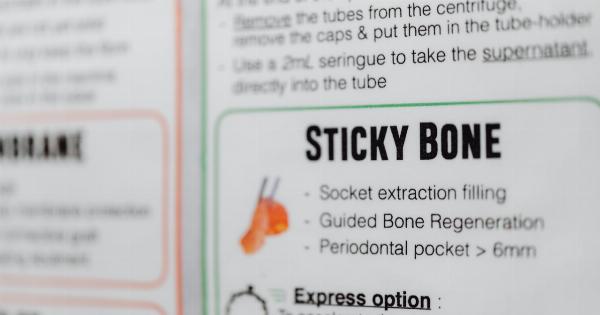Implantation is the process in which a fertilized egg implants into the lining of the uterus, which is a crucial step in pregnancy.
During this stage, the embryo produces the hormone human chorionic gonadotropin (hCG), which results in the potential signs of implantation.
While implantation generally occurs a week or two before your missed period, some women may experience certain symptoms that can indicate that implantation has occurred, which we will discuss in this article.
1. Spotting or Light Bleeding
Some women may experience very light spotting or bleeding during implantation, which can occur due to the implantation of the fertilized egg into the uterine lining.
The bleeding is usually lighter than a normal period and may appear as light pink or brown spots. This implantation bleeding usually lasts for a few days and occurs around a week before your expected period.
2. Cramping
Mild cramping can also occur during implantation and can be easily mistaken as menstrual cramps. However, the cramps during implantation are generally milder and not as intense as menstrual cramps.
The cramps can occur on either side of the lower abdomen or in the lower back and can last anywhere from a few minutes to several days.
3. Breast Changes
Due to the production of the hormone progesterone, which increases after implantation, some women may experience changes in their breasts. This can result in soreness, tenderness or enlargement of the breasts and nipples.
These changes can start a few days after implantation and can last throughout the pregnancy.
4. Fatigue
Due to the increase in progesterone levels, fatigue and tiredness can occur as early as a week before your missed period, which can be a sign of implantation.
During the implantation phase, the body undergoes major changes, including the increase in production of hCG and progesterone, which can lead to a feeling of exhaustion.
5. Nausea and Vomiting
Some women may experience nausea and vomiting during the implantation phase, which can occur due to the increase in progesterone levels. This can also be caused by morning sickness, which commonly starts in the first trimester of pregnancy.
If you experience prolonged nausea and vomiting, it is advisable to speak to a healthcare professional.
6. Increased Basal Body Temperature
Basal body temperature (BBT) refers to the lowest body temperature when at rest. During implantation, the body temperature can increase slightly due to the production of progesterone.
Your BBT can be measured using a basal thermometer first thing in the morning before getting out of bed, which can indicate if implantation has occurred or not.
7. Mood Swings
The increase in hormonal levels during the implantation phase can lead to mood swings, which can include irritability, anxiety, and moodiness. These changes in mood can occur a week before your missed period and can last throughout the pregnancy.
8. Increased Urination
The increase in hCG levels during the implantation phase can lead to frequent urination, which can occur due to the pressure that the growing uterus places on the bladder.
If you experience an increase in urination along with the other symptoms listed here, it may be a sign of implantation.
9. Changes in Appetite and/or Cravings
Sometimes, women may experience cravings or changes in appetite during implantation due to the increased hormonal levels.
The cravings can range from sweet, salty, spicy or sour foods, while changes in appetite may include not feeling like eating, which can lead to a loss of appetite.
10. Metallic Taste in the Mouth
Some women may experience a metallic taste in their mouth, which can occur due to the increase in hormonal levels during implantation.
This metallic taste in the mouth can last throughout the pregnancy and can be a sign that implantation has occurred.
Conclusion
If you experience any or all of the ten symptoms listed above, it may be a sign that implantation has occurred.
However, it is important to note that these symptoms can also be caused by other factors, such as stress, hormonal imbalances, or other medical conditions.
If you suspect that you may be pregnant, it is important to consult a healthcare professional to confirm the pregnancy and obtain proper prenatal care.






























